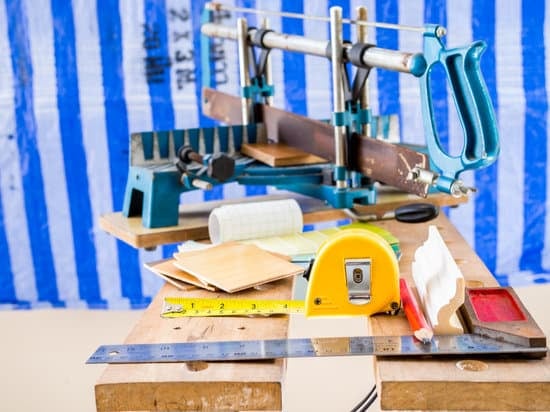When homeowners embark on home improvement projects, one common question that arises is, “Can I deduct home improvements when I sell my home?” Understanding the tax implications of home improvements is crucial for maximizing potential benefits. Homeowners may wonder whether the money invested in improving their property can translate into tax deductions or credits when it comes time to sell.
Home improvements can range from renovations that enhance the overall value of a property to repairs necessary for maintaining its functionality. It is essential to distinguish between these two categories as they have different tax treatments. While repairs are generally not deductible, certain home improvements may qualify for tax deductions if they meet specific criteria set by the Internal Revenue Service (IRS).
Eligible home improvements for tax deductions typically include those that add value to a property, improve its energy efficiency, or make it more accessible for individuals with disabilities. Keeping detailed records of these improvements, such as receipts and invoices, is vital to substantiate any claims made during tax filing. By understanding what qualifies as eligible home improvements and how to document them properly, homeowners can potentially reduce their tax liability when selling their home.
Understanding Home Improvements vs Repairs
When it comes to tax deductions for home improvements, it is important to understand the distinction between home improvements and repairs. Home improvements are enhancements that add value to your property, while repairs are necessary fixes to maintain the property’s current condition. The IRS typically allows tax deductions for home improvements that increase the value of your home, but not for routine repairs or maintenance.
Some examples of home improvements that can potentially be deducted when you sell your home include adding a new room, remodeling a kitchen or bathroom, installing a new HVAC system, or putting in a new roof. These types of improvements are considered capital expenditures that can increase the overall value of your property.
On the other hand, repairs such as fixing a leaky faucet, patching up holes in the wall, or repainting a room are considered maintenance expenses and are not eligible for tax deductions.
It is crucial to keep detailed records of all home improvements made to your property in order to claim them as tax deductions when you sell your home. This includes receipts, invoices, contracts, and any other relevant documentation showing the cost and scope of the improvement project. By keeping organized records, you can provide evidence to support your deduction claims and potentially reduce your capital gains tax liability.
Eligible Home Improvements for Tax Deductions
When it comes to selling your home, many homeowners wonder, “Can I deduct home improvements when I sell my home?” The answer lies in understanding which home improvements qualify for tax deductions. Eligible home improvements are those that increase the value of your property, prolong its useful life, or adapt it to new uses. These improvements can potentially reduce the amount of capital gains tax you owe when selling your home.
Some common eligible home improvements that may qualify for tax deductions include additions such as a new deck or patio, renovations to the kitchen or bathroom, installing a new HVAC system, or adding a security system. Additionally, energy-efficient upgrades like solar panels or energy-efficient windows and doors can also be eligible for tax deductions. It’s important to keep in mind that only the cost of the improvement itself is deductible, not the entire project cost.
To ensure that your home improvements qualify for tax deductions when you sell your home, it’s crucial to maintain detailed records of all expenses related to the improvements. This includes receipts for materials and labor costs, permits obtained for the work done, as well as any relevant documentation proving the increase in property value due to the improvements.
By keeping thorough records, you will be better prepared to demonstrate to the IRS that the expenses were indeed made on eligible home improvements.
One limitation to keep in mind is that not all home improvements are eligible for tax deductions. Repairs and maintenance tasks are generally not considered eligible unless they are part of a larger improvement project that increases the property’s value.
Additionally, any personal use portion of an improvement (such as adding a game room solely for personal enjoyment) would not be deductible. It’s important to consult with a tax professional or accountant to determine which home improvements can be deducted when selling your home and maximize your potential tax benefits.
| Eligible Home Improvements | Examples |
|---|---|
| Energy-Efficient Upgrades | Solar panels, energy-efficient windows |
| Additions | New deck/patio, kitchen renovations |
| Structural Improvements | HVAC system installation, security systems |
Qualifying for Home Improvement Tax Deductions
Meeting IRS Criteria
When it comes to claiming tax deductions on home improvements, it is essential to understand that not all expenses related to improving your property can be deducted. The IRS has specific criteria that must be met in order to qualify for these deductions. Generally, the improvements made to your home must increase its value, prolong its useful life, or adapt it to new uses in order to be eligible for a tax deduction.
Primary Residence Requirements
In most cases, you can deduct home improvements when you sell your home only if it is your primary residence and not an investment property or second home. This means that the upgrades or renovations must directly benefit the living conditions of you and your family. It’s also worth noting that certain energy-efficient upgrades like solar panels or geothermal heat pumps may qualify for additional tax credits beyond just deductions.
Documentation and Proof of Expenses
To claim tax deductions on home improvements, proper documentation is key. Make sure to keep detailed records of all expenses related to the renovation or improvement project. This includes receipts, invoices, contracts, and any other relevant paperwork. Having accurate documentation will not only help support your deduction claims but also protect you in case of an audit by the IRS. Remember, maintaining thorough records is crucial in proving that the expenses incurred were indeed for qualified home improvements.
Keeping Records of Home Improvements
Homeowners who have invested in home improvements often wonder, “Can I deduct home improvements when I sell my home?” Keeping accurate records of home improvements is crucial to potentially qualify for tax deductions when the time comes to sell. The IRS allows taxpayers to include certain home improvement expenses in the cost basis of their property, which can reduce the capital gains tax owed on the sale.
When it comes to record-keeping, homeowners should retain all receipts, contracts, and invoices related to the home improvement projects. This documentation will serve as proof of the costs incurred and the work performed. Additionally, keeping before and after photos can help demonstrate the upgrades made to the property. Organizing these records in a centralized location can make it easier to access them when needed.
In order to claim a deduction for home improvements when selling your home, it’s important to distinguish between repairs and improvements. While repairs are typically considered maintenance expenses and cannot be deducted, eligible home improvements that add value or prolong the life of the property may qualify for tax deductions. Consulting with a tax professional can help homeowners navigate these distinctions and maximize their tax benefits.
| Records | Importance |
|---|---|
| Receipts, contracts, invoices | Evidence of costs incurred |
| Before and after photos | Demonstrates upgrades made |
Limitations and Restrictions on Home Improvement Tax Deductions
When it comes to deducting home improvements when selling your home, there are certain limitations and restrictions that homeowners need to be aware of. While home improvements can potentially increase the value of your property, not all expenses incurred for these purposes are eligible for tax deductions.
Personal vs. Rental Property
It is important to differentiate between using your property as a primary residence or as a rental property when considering tax deductions for home improvements. Expenses related to improving a rental property may be deductible in full, while expenses for personal residences may have limitations.
Timing of Deductions
In general, expenses for home improvements can I deduct home improvements when i sell my home themselves cannot be deducted immediately but may be included in the cost basis of the property. This means that they can potentially reduce capital gains taxes when you sell your home in the future. It’s crucial to consult with a tax professional to determine the appropriate timing and method for deducting these costs.
IRS Guidelines
The Internal Revenue Service (IRS) has specific guidelines on what qualifies as a deductible expense for home improvements. Generally, repairs that maintain the current value of the property are not deductible, while upgrades that increase the property’s value or extend its life span may qualify. Understanding these guidelines can help homeowners navigate the complexities of claiming tax deductions for home improvements effectively.
Capital Gains Tax Implications When Selling Your Home
When it comes to selling your home, understanding the capital gains tax implications is crucial in order to make informed decisions and potentially maximize tax benefits. Capital gains tax is the tax imposed on the profit gained from the sale of a capital asset, such as real estate. The amount of capital gains tax you owe can vary depending on factors such as how long you owned the property and whether it was your primary residence.
To determine your capital gains tax liability when selling your home, the first step is to calculate your adjusted basis. This includes not only the original purchase price of the property but also any additional costs incurred for improvements or renovations. These home improvements can potentially help reduce your overall capital gains by increasing your adjusted basis.
- Keep track of all expenses related to home improvements, including receipts and invoices.
- Consider hiring a professional appraiser to accurately determine the value added by the improvements.
- Understand that not all home improvements will qualify for tax deductions, so consult with a tax professional for guidance.
It’s important to note that while certain home improvements can increase your adjusted basis and potentially reduce your capital gains tax liability, not all expenses related to improving your home can be deducted when selling it. Understanding the distinction between repairs and improvements is key, as only improvements that add value or extend the life of the property are typically eligible for tax deductions.
Consulting with a tax professional can help clarify which expenses can i deduct home improvments when i sell my home are eligible for deductions when you sell your home.
Strategies for Maximizing Tax Benefits From Home Improvements
When it comes to maximizing tax benefits from home improvements, proper planning and documentation are key. By understanding the rules and regulations set forth by the IRS, homeowners can ensure that they are taking full advantage of any potential deductions when it comes time to sell their home. Here are some strategies to consider:
- Plan Ahead: Before embarking on any major home improvement projects, homeowners should consider how these upgrades may affect their taxes when they sell their home. Knowing which improvements qualify for deductions can help in making informed decisions.
- Keep Detailed Records: Maintaining thorough records of all home improvement expenses is crucial. This includes receipts, invoices, contracts, and any other relevant documentation that can i deduct home improvments when i sell my home Having these records on hand will make the process smoother when claiming deductions.
- Consult with a Tax Professional: Tax laws and regulations can be complex and ever-changing. Seeking guidance from a tax professional or accountant can help homeowners navigate through the intricacies of tax deductions related to home improvements.
By following these strategies, homeowners can potentially maximize their tax benefits from home improvements when selling their property. Being proactive in planning, keeping accurate records, and seeking expert advice when needed can ultimately lead to significant savings in taxes down the line.
Key Takeaways and Conclusion
In conclusion, while making home improvements can enhance the value of your property and make it more attractive for potential buyers, not all expenses incurred on these improvements can be deducted when you sell your home. It is essential to understand the difference between home improvements and repairs, as only certain types of improvements are eligible for tax deductions. Keeping detailed records of all home improvement expenses is crucial to support your claims for deductions.
When it comes to qualifying for home improvement tax deductions, you must meet certain criteria set by the IRS. Additionally, there are limitations and restrictions on the amount that can be deducted, so it’s important to familiarize yourself with these rules to maximize your tax benefits. Capital gains tax implications should also be considered when selling your home after making significant improvements.
To optimize your tax benefits from home improvements, it is advisable to consult with a tax professional who can provide guidance on strategies for maximizing deductions and minimizing capital gains taxes. By staying informed and proactive in managing your home improvement expenses, you can potentially reduce your tax liability when selling your home. Remember that proper record-keeping and compliance with IRS regulations are key to successfully claiming deductions related to home improvements.
Frequently Asked Questions
Can You Deduct Home Improvements When You Sell a House?
You generally cannot deduct home improvements when you sell a house from your taxes. However, the cost of improvements can be added to the original purchase price, which can reduce any potential capital gains taxes.
Can You Subtract Home Improvements From Capital Gains?
It is not possible to subtract home improvements directly from capital gains when selling a house for tax purposes. However, the cost of improvements can be factored into the calculation of capital gains by increasing the adjusted basis of the property.
What Costs Can Be Offset Against Capital Gains?
Costs that can be offset against capital gains include expenses related to selling the property such as real estate agent commissions, legal fees, transfer taxes, and advertising costs. Additionally, any depreciation taken on the property may also affect capital gains calculations.

I’m thrilled to have you here as a part of the Remodeling Top community. This is where my journey as an architect and remodeling enthusiast intersects with your passion for transforming houses into dream homes.





